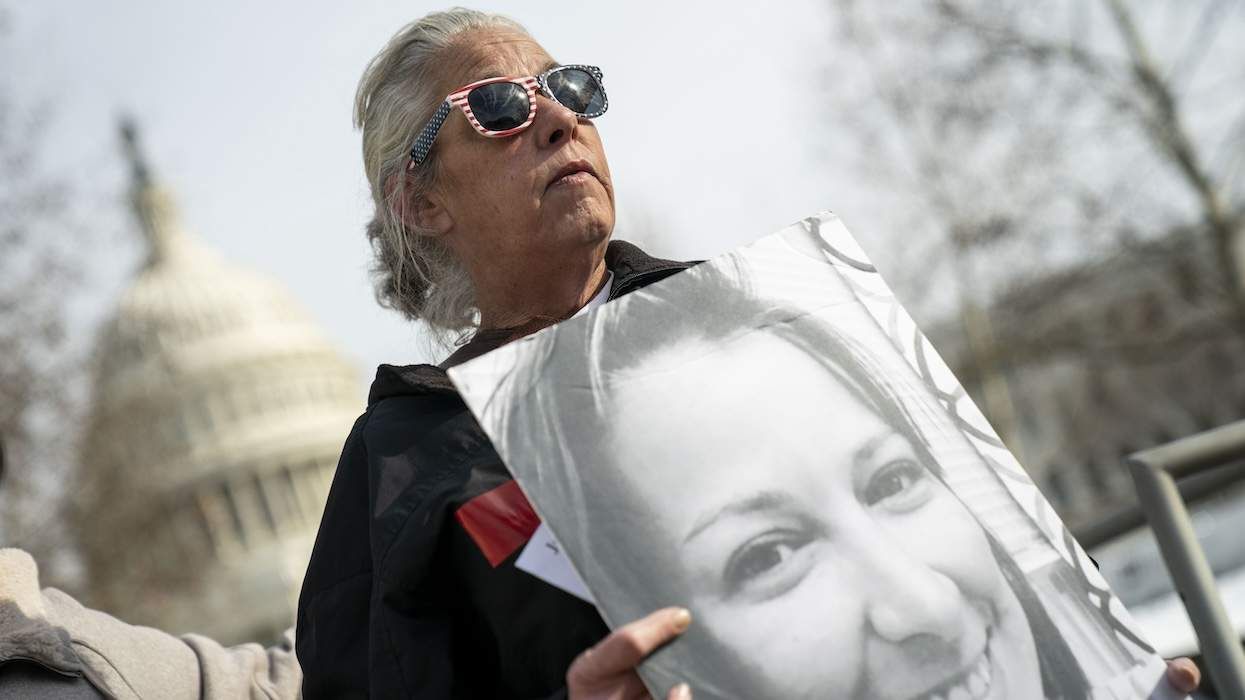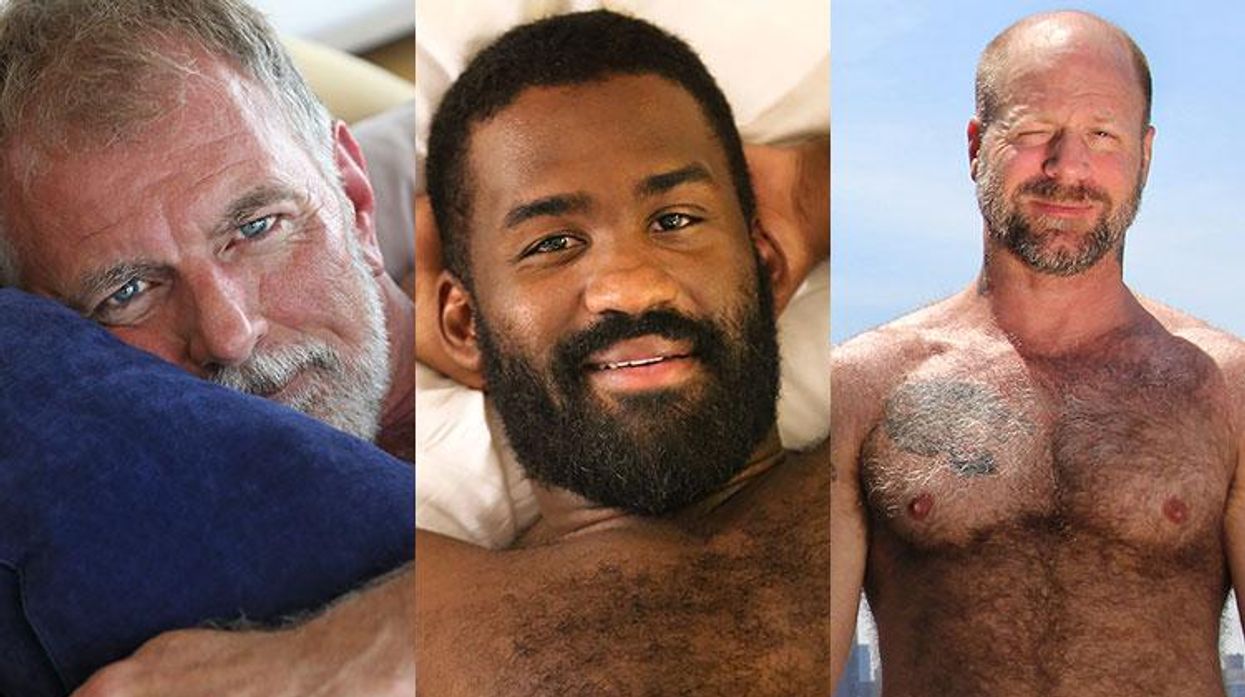Donald Trump has unveiled a new shortlist of potential U.S. Supreme Court nominees, and it includes such anti-LGBTQ+ types as Sens. Ted Cruz, Tom Cotton, and Josh Hawley as well as the lawyer who defended the Defense of Marriage Act.
The 20 names on the list are in addition to those Trump has previously said he'd consider for Supreme Court nominations; the earlier ones remain under consideration, according to sources. Those listed previously were largely anti-LGBTQ+ and antichoice, although Neil Gorsuch, now on the court, surprisingly authored a ruling for LGBTQ+ equality in June in Bostock v. Clayton County. The 20 additions are much the same.
Cruz, who sought the Republican presidential nomination in 2016, is a longtime opponent of marriage equality and supporter of restrictions on transgender people's use of public restrooms. He's in his second term representing Texas in the U.S. Senate, where he has received low scores on LGBTQ+ rights on the Human Rights Campaign's Congressional Scorecard. In 2015, he joined his father, extremist anti-LGBTQ+ preacher Rafael Cruz, at an event held by the equally extremist minister Kevin Swanson, who has said the Bible supports the death penalty for homosexuality. Ted Cruz's staff later said it was a mistake for him to attend.
Cotton, a U.S. senator from Arkansas, also has an anti-LGBTQ+ record and once said that LGBTQ+ Americans who worry that so-called religious freedom laws would enable discrimination should have "a sense of perspective" because "in Iran they hang you for the crime of being gay." This year The New York Times published an op-ed in which Cotton distorted numerous facts to back up his argument for sending the military to cities where protests against police brutality were taking place. The Times' editorial page editor, James Bennet, said the piece had not been vetted sufficiently, and he resigned. And Cotton tweeted just today in favor of overturning Roe v. Wade, the Supreme Court decision that established abortion rights nationwide.
Hawley, a first-term senator from Missouri, was highly critical of the Bostock decision, calling it "the end of the conservative legal movement." At a Senate Judiciary Committee hearing last year, he gave Lawrence VanDyke, a nominee for the U.S. Court of Appeals for the Ninth Circuit, a chance to deny being anti-LGBTQ+, which VanDyke did, tearfully. But VanDyke, who ended up being confirmed and is also on the new Supreme Court list, has signed on to legal briefs arguing against marriage equality and for the right to discriminate against LGBTQ+ people if such discrimination is rooted in religious beliefs.
Another on the list is Paul Clement, who was U.S. solicitor general in George W. Bush's administration and, as a private attorney, was hired by conservatives in Congress to defend DOMA in court when President Barack Obama's administration refused to do so. DOMA's ban on federal recognition of same-sex marriages was struck down by the Supreme Court in 2013.
The list also includes Noel Francisco, who until recently was U.S. solicitor general, a position in the Department of Justice. In that capacity he argued for the right of businesses to discriminate against LGBTQ+ people in the Masterpiece Cakeshop case and filed briefs in the Bostock case contending that existing civil rights law against sex discrimination should not be interpreted to include anti-LGBTQ+ discrimination. The high court ruled otherwise. Among the others with significant anti-LGBTQ+ records are current federal appellate judges Kyle Duncan and James Ho.
From Trump's previously announced potential Supreme Court picks, the front-runner is still apparently Amy Coney Barrett, another federal appellate judge. She doesn't have much of a paper trail on LGBTQ+ issues but has said, "The Constitution does not expressly protect a right to privacy," a statement that has implications for both abortion rights and LGBTQ+ rights.
Whoever is elected president in November will likely have a chance to appoint one or more Supreme Court justices. No current justices have announced an intention to retire, but leading liberal Ruth Bader Ginsburg is 87 and has undergone cancer treatment. Another liberal, Stephen Breyer, is 82. Four other members of the court are 65 or older.
Lambda Legal was quick to sound the alarm about the new list. "This list is teeming with individuals who have alarming anti-LGBTQ and anti-civil rights records, which should be disqualifying for any judicial nominee, let alone a nominee for the Supreme Court," said a statement released by Legal Director and Chief Strategy Officer Sharon McGowan. "Notably, the President's 'litmus test' for SCOTUS nominees seems to have demanded zealous opposition to abortion and common sense gun control measures, as well as an unrelenting commitment to destroying the Affordable Care Act and a deep hostility to LGBTQ equality. All of these positions are far outside of the mainstream, and threaten not only the legal rights but also the health and safety of LGBTQ people, everyone living with HIV, and other groups who rely on fair and impartial courts to vindicate their rights."
Ben Jealous, president of People for the American Way, also issued a statement, emphasizing the importance of the upcoming presidential election: "At a time when Donald Trump's judges and justices are already posing an existential threat to health care and coverage for preexisting conditions, his updated list of potential Supreme Court nominees is yet another emergency alarm making clear the extremely high stakes of this election. This list is packed with far-right ideologues, many of whom have already racked up deeply troubling records on lower courts. With four more years in office Trump would likely have the chance to push the Supreme Court so far to the right that health care protections would be lost forever. Reproductive rights, voting rights, and other vital rights are also at risk as more Trump Supreme Court justices would give Republicans even more power to dismantle our democracy. When we vote this fall, we have to remember that a presidency lasts for four or eight years but Supreme Court justices serve for life. It's a critically important reason to support not just the Biden-Harris ticket, but also U.S. Senate candidates who will only vote to confirm fair-minded judges and justices to the federal bench."















